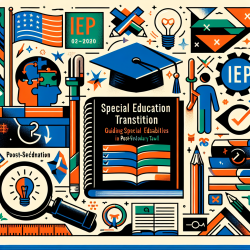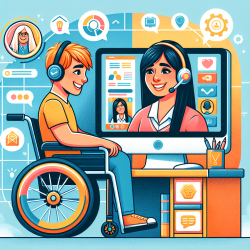In today's rapidly evolving educational landscape, technology plays an increasingly pivotal role. However, as highlighted in the research article "The research we have is not the research we need" by Thomas C. Reeves and Lin Lin, there is a pressing need to shift our focus from mere technological advancements to addressing real-world educational challenges. This blog post explores how practitioners can enhance their skills by leveraging insights from recent systematic reviews and encourages further research to bridge the gap between technology and effective teaching practices.
The Current State of Educational Technology Research
The article underscores a critical issue: many educational technology products are marketed as "proven" solutions without robust evidence to support such claims. This problem has been exacerbated by the rush to adopt online learning tools during the COVID-19 pandemic. As practitioners, it's crucial to critically evaluate these claims and seek evidence-based guidance.
Systematic reviews in the special issue of Educational Technology Research and Development provide valuable insights. These reviews utilize methodologies like meta-analysis and scoping reviews to synthesize research on various learning technologies. While these reviews are primarily aimed at researchers, they offer practical implications for educators seeking to enhance their practice.
Practical Implications for Practitioners
- Social Media in Education: While social media holds potential for enhancing learning, its integration should be approached with caution. Practitioners are encouraged to use action research to test social media's effectiveness in supporting pedagogical goals.
- Mobile Technologies: Mobile-assisted language learning (MALL) and mobile game-based learning show promise in improving literacy and STEM education. Educators should align app characteristics with learning objectives and consider multiple interventions for significant impact.
- Adaptive Learning: Adaptive learning technologies can personalize education based on learner characteristics. Practitioners should explore how these technologies can be tailored to individual needs to enhance learning outcomes.
The Need for Educational Design Research (EDR)
The article advocates for a shift towards Educational Design Research (EDR), which focuses on solving real-world problems through iterative development and empirical investigations. Unlike traditional research methods that often yield inconclusive results, EDR emphasizes collaboration with practitioners to design interventions that address significant educational challenges.
By adopting EDR approaches such as design-based research and formative research, educators can develop solutions that not only improve practice but also contribute to theoretical understanding. This collaborative effort can lead to incremental changes that have a meaningful impact on learners' lives.
Moving Forward: From Research We Have to Research We Need
The authors emphasize the importance of focusing on educational problems rather than technological "things." By developing robust research agendas that address issues like student engagement and equitable access to education, researchers and practitioners can work together to create lasting change.
To truly transform education, we must move beyond expecting technological innovations alone to solve complex problems. Instead, fostering collaboration between researchers and practitioners will enable us to tackle global challenges related to teaching and learning effectively.
For those interested in delving deeper into this topic, I encourage you to read the original research paper The research we have is not the research we need.










